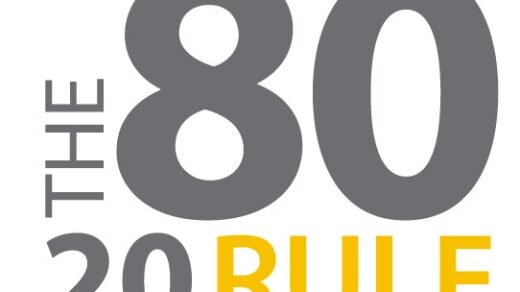
It has now been over 25 years since I have been in this wonderful field as a paid professional (and probably an additional 6 as a volunteer). And I can honestly say that I have seen some huge change — advances and even setbacks in the charitable world. My first campaign was done on recipe cards!
It is interesting that I have chosen to focus a lot of my attention on the different ways the various generations approach philanthropy. As a Gen X’er, I am very conscious of the ways that charities have chosen to engage (or not) with me and how that differs from previous (and subsequent) generations. It would be safe to assume that my two boys’ generation will be courted in a substantially different manner than the way my wife and I have been.
My parents’ generation stayed with their charities-of-choice and rarely did that list of pre-approved charities change. It became a habit of theirs. The same went for the volunteerism associated with those charities. There was never a disconnect between the charities that received their time and charities that received their money. There was a greater level of trust in charities’ Board of Directors (if there was even an official board, to begin with). Why was the level of trust there? Quite likely it was due to the fact that they themselves served on that board for a while. Even if they didn’t personally sit on the Board themselves, there was a comfort level with the decisions that the Board made — they knew the members of the Board and trusted them implicitly. Donations were made (largely undesignated) and it was the Board who made the ultimate decision regarding designations. Priority needs were the phrase of the day. There was a trust level in the Board that has not been replicated since.
Fast forward to my generation — a little more skeptical. Many of my colleagues have never sat on a volunteer Board. Maybe it’s because they haven’t been asked. Maybe it’s because there is so much competition for their scarce resource of time and they have demanding family lives. Maybe it’s because they don’t see themselves as having the ability to affect change. Maybe it’s because this generation knows that you have to pay to play (you must be a donor in good stead to sit on a charity’s Board, right?). My generation has its list of charities-of-choice, but unlike the previous generation, if we disagreed with a directive that the Board made, we would take our baseball and bat and go home. There was not the unconditional trust of the Board that previous generations enjoyed. Accountability and impact are the key buzzwords of my generational cohort.
Now go to the next generation, the Millenials. They are much more skeptical than the Gen X’ers. I have learned that Millenials believe the previous generations have screwed up the world. That is the bad side. The good side is that they are very willing (and believe themselves to be capable) of fixing it. They will be associated with a charity for a finite amount of time, often focused on a singular project or goal. And they had better see some impact for their contributions (of both time and money) or they will move on. Many times, the Millenials will think of an initiative, work on it through fruition and then move with their talents elsewhere. It is not a condemnation of the charity that they had just worked with, rather it is part of the transient mindset — off to the next charity!
So — with 85,000+ charitable organizations in Canada, we had better find a way to properly engage the various generations — there isn’t a magical formula that works for everyone. The status quo must be questioned (if not thrown out altogether). It is so very important that trust is earned because it is no longer taken for granted. There is a hyper-vigilance around the notion of overhead and impact and even change. Just from an efficiency standpoint, think of how many of the 85,000+ charities that are doing the exact same thing — each with its own board, resources, etc. Just because you can start a charity doesn’t mean that you should (and I will cover this topic in a future post).
It is of utmost importance to understand the different generational philanthropic needs that each cohort brings. There isn’t a magic wand that will have alignment across the cohorts, but a recognition of the varying needs is usually the first step.
There are a lot of Jewish holy days coming up over the next few Fridays, so the next posting will be on October 20th.
L’chaim
jack




